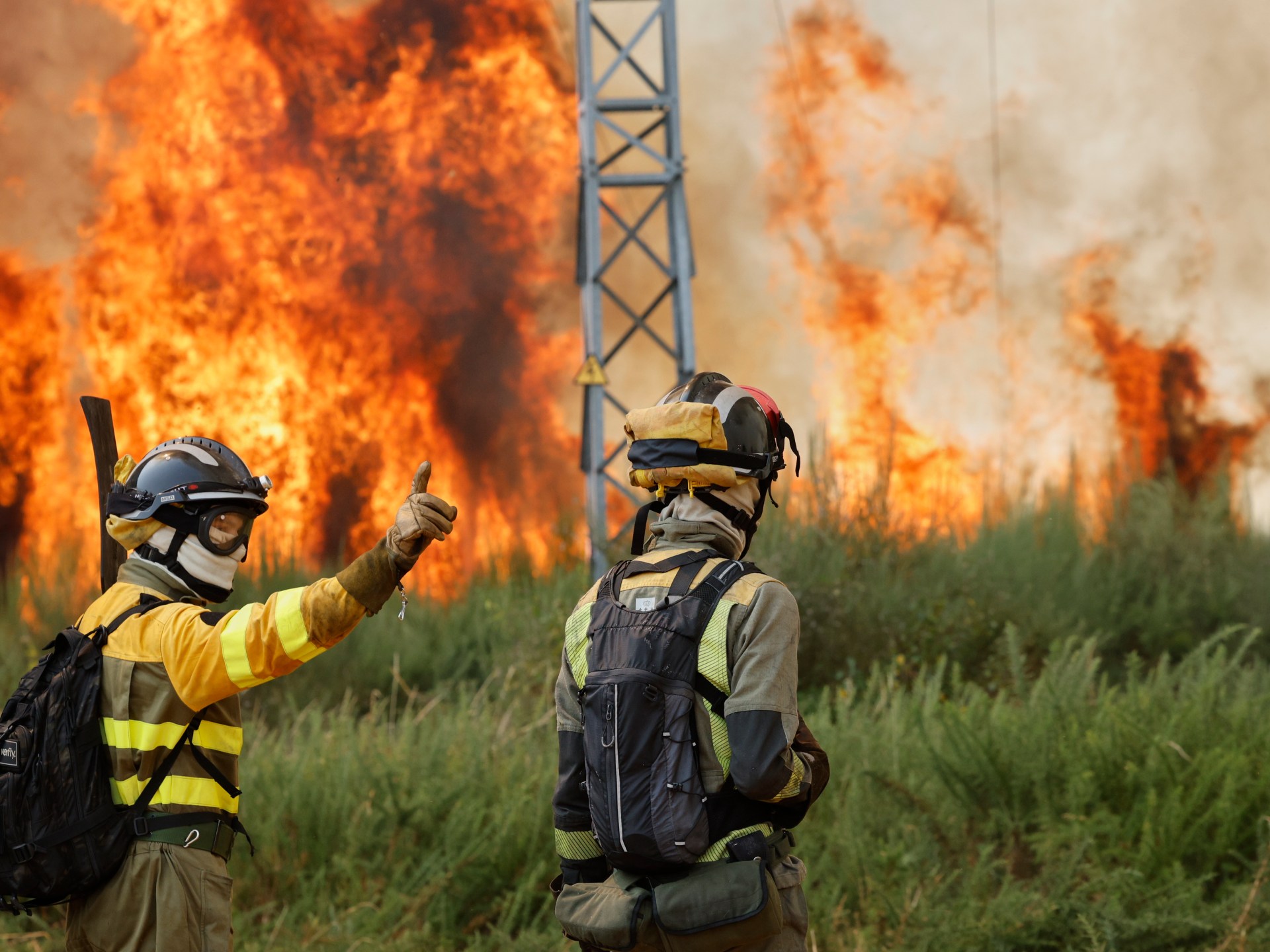As Spain battles 20 major wildfires that erupted last week, the military emergency unit has deployed 500 additional soldiers to aid in firefighting operations.
At a press conference on Sunday in Ourense, one of the most affected areas in northwestern Spain, the prime minister said, “There are still some challenging days ahead, and sadly, the weather is not on our side.”
He announced a rise in military resupply orders, increasing the number of soldiers stationed throughout Spain to 1,900.
According to Alfonso Rueda, the head of the Galician regional government, firefighters are tackling 12 serious wildfires in the northwestern region of Galicia alone, all of which are close to the city of Ourense.
According to Rueda, “homes are still in danger, so we have lockdowns in place and are evicting people.”
Authorities were anticipating the arrival of promised aircraft reinforcements from other European nations when the announcements were made.
Due to the fires, the national rail operator Renfe announced that it had cancelled Sunday’s high-speed trains between Madrid and Galicia.
Authorities in Galicia advised people to wear face masks and to limit how much time they spent outdoors was spent avoiding breathing in smoke and ash.
Spain is among the hardest-hit nations in southern Europe as one of its worst wildfire seasons in 20 years.
In addition to Portugal, which has experienced widespread blazes, fires there have already claimed three lives and burned more than 1,150 square kilometers (445 square miles) in the past week alone.
According to Spain’s national weather agency, AEMET, temperatures are expected to reach 45 degrees Celsius (113 degrees Fahrenheit) in some areas on Sunday.
The weather conditions are “very adverse,” according to Virginia Barcones, director general of emergency services, who reported to Spanish public TV that the temperatures were expected to drop from Tuesday.
EU assistance on its way
Residents’ resident Basilio Rodriguez told the Reuters news agency on Saturday that “the fireplanes come in from all sides, but they don’t come here.”
Two Dutch water-dumping planes, which had already been providing assistance to Spanish authorities through a European cooperation agreement, were expected to arrive in Spain.
In the upcoming days, Barcones told RTVE, a public broadcaster, that firefighters from other nations are also expected to visit the area.
Since June, according to information from the Ministry of Interior, 27 people have been detained and 92 have been questioned for allegedly arson.
According to provisional data from the Institute for Nature Conservation and Forests, wildfires have burned about 1,550 square kilometers (600 square miles) of vegetation in Portugal so far this year, three times the average for the time frame from 2006 to 2024. In the last three days, about half of that area has burned.
Eight large fires, the largest of which was near Piodao, a picturesque, mountainous area popular with tourists, were being battled by thousands of firefighters in central and northern Portugal.
Further north, in Trancoso, a fire has been raging for eight days. A local resident was the first victim of the season when a smaller fire east of there came to their aid on Friday.
In the upcoming days, Portugal is anticipating cooler weather. On August 2, a national state of alert for wildfires was established, and it was scheduled to end on Sunday, one day before two Swedish firefighting planes arrived.
Portugal’s resources have been stretched, just like in Spain. The Civil Protection Agency reported that 17 aircraft, 1,300 vehicles, and more than 4, 000 firefighters were stationed on Sunday.
Turkiye’s wildfires are also igniting.
In recent days, Albania, Bulgaria, Montenegro, and Greece have all requested assistance from the firefighting force of the European Union. This year, the force has already been activated twice as many times as it has all year’s summer fire season.
Parts of the historic region, which includes memorials to World War I’s Gallipoli campaign, were evacuated on Sunday in Turkiye, where 19 people have died recently as a result of wildfires.
According to Omer Toraman, governor of Canakkale province, six villages were forced to be evacuated as a precautionary measure.
The General Directorate of Forestry reported that about 1,300 firefighters and 30 aircraft were battling the fires.
Since late June, Turkiye has experienced hundreds of fires, which were fueled by record-breaking temperatures, dry conditions, and strong winds.
Source: Aljazeera

Leave a Reply